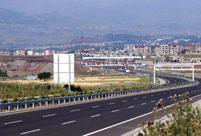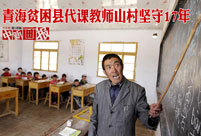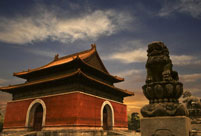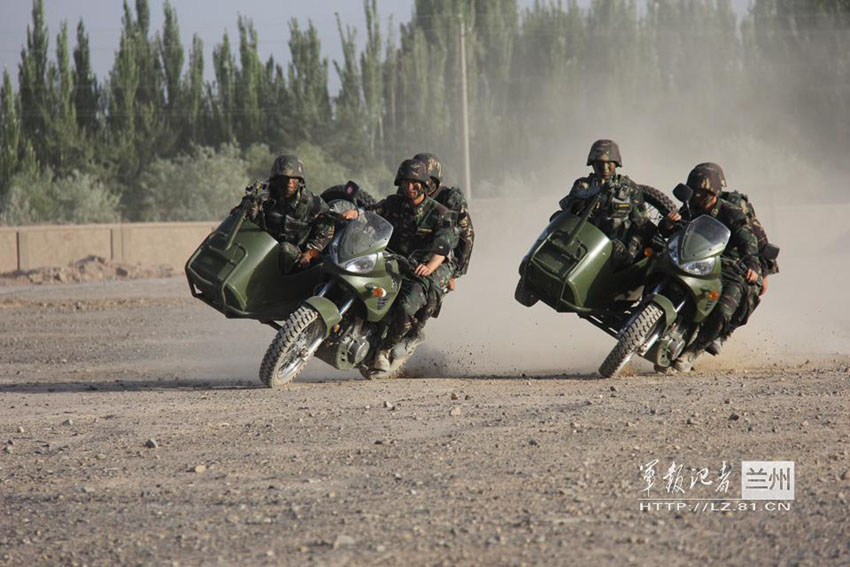 Beautiful Chinese-built roads in Africa
Beautiful Chinese-built roads in Africa Sagya Monastery in Tibet
Sagya Monastery in Tibet
 Young Chinese drive consumption
Young Chinese drive consumption
 The life of a model: Not as glamorous as it seems
The life of a model: Not as glamorous as it seems
 Hello Kitty, happy 40th birthday!
Hello Kitty, happy 40th birthday!
 The Western Qing Mausoleum
The Western Qing Mausoleum
 Avant-garde approach to graduation photos
Avant-garde approach to graduation photos
 Early PLA posters, signatures of an era
Early PLA posters, signatures of an era
 First Russian Street in Tianjin open to public
First Russian Street in Tianjin open to public
 Motorcycle stunt on the Bund
Motorcycle stunt on the Bund
NAY PYI TAW, May 6 -- Myanmar's presidential spokesman U Ye Htut has said that China "has been and will continue to be an important force for the development and stability of ASEAN."
U Ye Htut made the remarks in an exclusive interview with Xinhua ahead of the ASEAN summit in Myanmar, current rotating presidency of the ten-member regional bloc, on May 10-11.
He elaborated stance and view over a wide range of issues covering China-ASEAN ties, ASEAN summit and China-Myanmar relations.
U Ye Htut said China has remained an important partner for the development and stability of the Southeast Asian region since China started economic reform in 1978. China is not only the largest trading partner of ASEAN but also the main investor of some ASEAN countries.
"China's peaceful development is extremely important to our region," he said. "The outcome of China's peaceful development can be shared with neighboring countries and the region. China's economic growth benefits development of other countries across the region."
He said that Myanmar supported the China-ASEAN "2+7" Cooperation Framework proposed by Chinese premier Li Keqiang at last year's ASEAN-China summit, adding that the upcoming summit would discuss the proposal in detail.
Myanmar hopes to implement the proposal which is seen as a very good opportunity for those countries in need of infrastructure construction, he said.
He maintained that implementation of the Chinese proposal would not only narrow the gap between ASEAN members states but also fully demonstrate China's peaceful development.
Speaking of China-ASEAN Free Trade Area (FTA) launched at the beginning of 2010, U Ye Htut said China-ASEAN FTA is the third biggest after Europe FTA and North America FTA in terms of GDP but the world's biggest FTA in terms of population.
The four fresh ASEAN members, namely Vietnam, Laos, Cambodia and Myanmar, are due to realize the aim of China-ASEAN FTA in 2015. He believed, however, that concerns over economic competition and challenges brought about by the FTA can be overcome.
U Ye Htut pointed out that there are some outstanding issues between some ASEAN member states and China, however he stressed that both ASEAN and China agreed on the principle of peaceful solution to the dispute.
U Ye Htut said that the disagreement between ASEAN members and China should be settled by themselves, and it is not workable for irrelevant countries to make indiscreet remarks.
He said that Asia is the birth place of the Five Principles of Peaceful Coexistence, so that the five principles should be applied to the settlement of all issues in the region without intervention by outside countries.
U Ye Htut said the upcoming ASEAN summit will focus on what preparation should be made in the final stage before the goal of ASEAN integration is met in 2015 as well as undertakings in the post-2015 period.
He added that as current chair of ASEAN, Myanmar President gives priority to enhancing relations between ASEAN member states and dialogue partners. "We hope to finalize the basic principles and framework for peaceful settlement of dispute either between ASEAN member states or between member states and dialogue partners. "
U Ye Htut said since Myanmar regained independence in 1948, Myanmar and China have maintained paukphaw (fraternal) friendship.
He pointed out that although the Myanmar government normalized relations with the West led by the United States, China-Myanmar relations did not weaken. In fact, China-Myanmar relations have been escalated to comprehensive strategic cooperative partnership.
Myanmar pursues independent foreign policy and is prepared to make friends with all countries, but he stressed that Myanmar refused to be used to contain other countries or interfere in others' internal affairs.
Myanmar's constitution prescribes that the country does not allow foreign troops to station in its territory.
He called for enhancement of understanding and exchange between Chinese and Myanmar people, in addition to government-to- government friendly relations. "As long as relations between the two peoples are friendly, the bilateral ties can avoid being instigated, disrupted and misunderstood."
U Ye Htut said Myanmar welcomes the initiative of building Bangladesh, China, India and Myanmar economic corridor as a very good opportunity to strengthen ties and cooperation, underlining the need for stability and peace in Myanmar's border areas to realize the blueprint.
He praised the creation of a new modern Silk Road proposed by China, saying it would contribute to narrowing the development gap in the region.
He compared economic development of ASEAN and China to twin engines. "If the two engines operate well, East Asia would head for better development."
 Solar halo occurs in Lhasa
Solar halo occurs in Lhasa Photos give cheongsam a new life
Photos give cheongsam a new life Badain Jaran Desert: Amazing curves of nature
Badain Jaran Desert: Amazing curves of nature Beautiful Chinese-built roads in Africa
Beautiful Chinese-built roads in Africa China wins 19th women's team title at table tennis worlds
China wins 19th women's team title at table tennis worlds High fashion trend welcomed by costumers in Changsha
High fashion trend welcomed by costumers in Changsha 17 years' teaching life in a remote village in Qinghai
17 years' teaching life in a remote village in Qinghai Chinese female fighter pilots participate in parachute landing training
Chinese female fighter pilots participate in parachute landing training The Western Qing Mausoleum
The Western Qing Mausoleum Newly recruited police in Hetian hold drill
Newly recruited police in Hetian hold drill  China's most luminous celebrities
China's most luminous celebrities Top 10 most expensive cars in the world
Top 10 most expensive cars in the world 'African Street' in Guangzhou
'African Street' in Guangzhou Special operation members in comprehensive training
Special operation members in comprehensive training Cute Shaolin boy melts the hearts of millions
Cute Shaolin boy melts the hearts of millionsDay|Week|Month